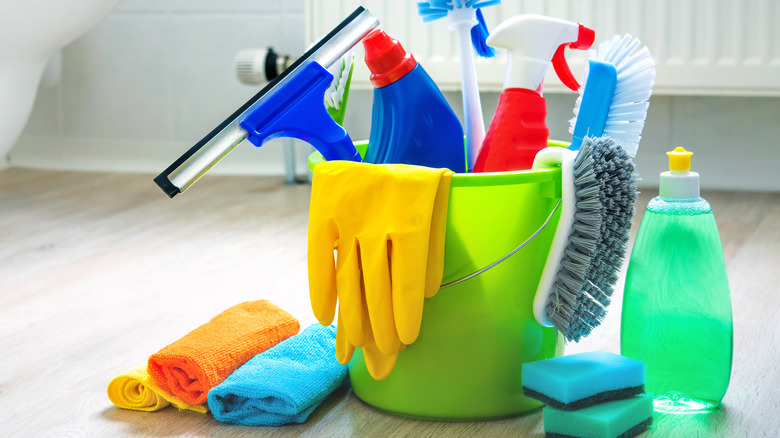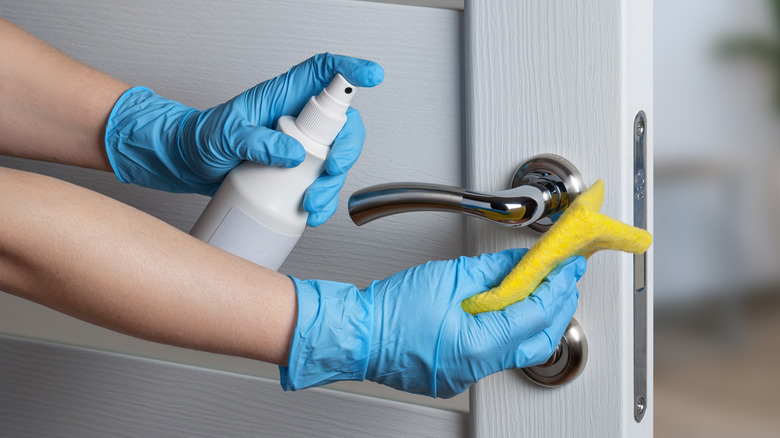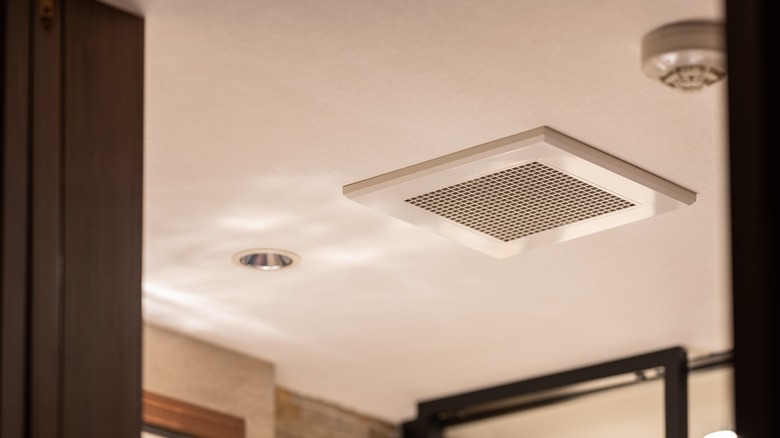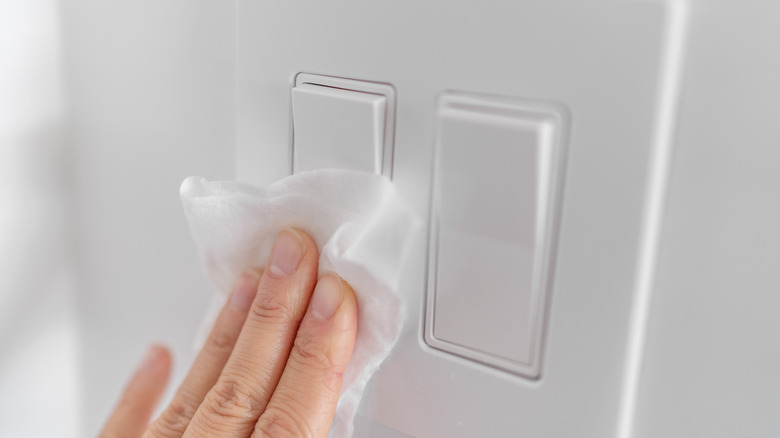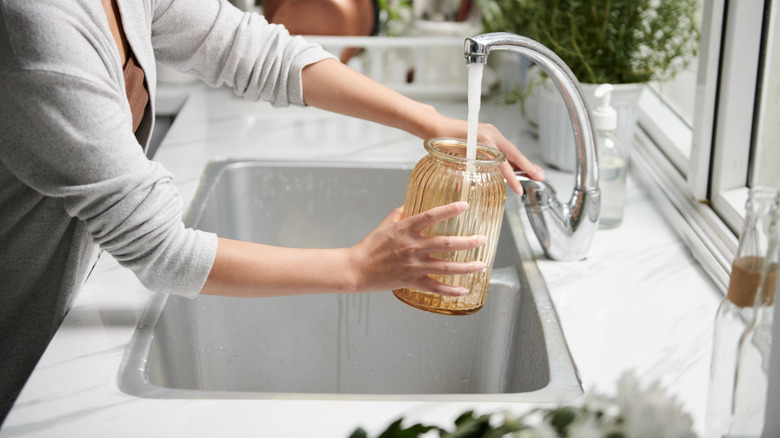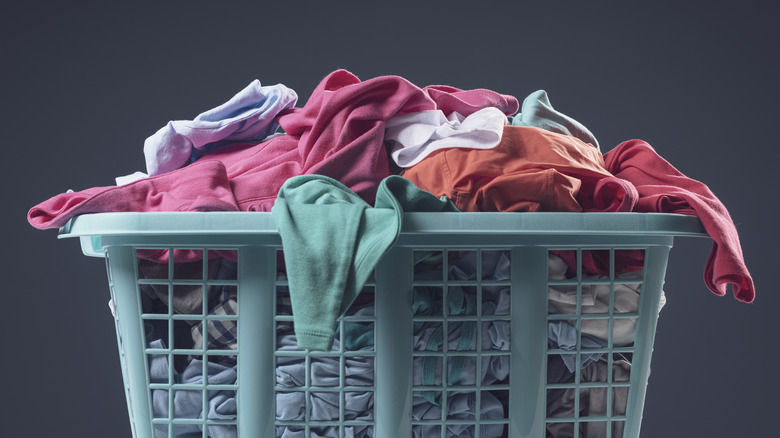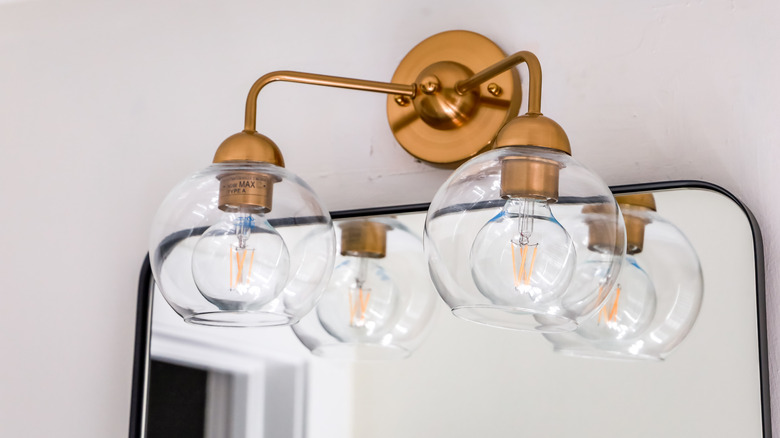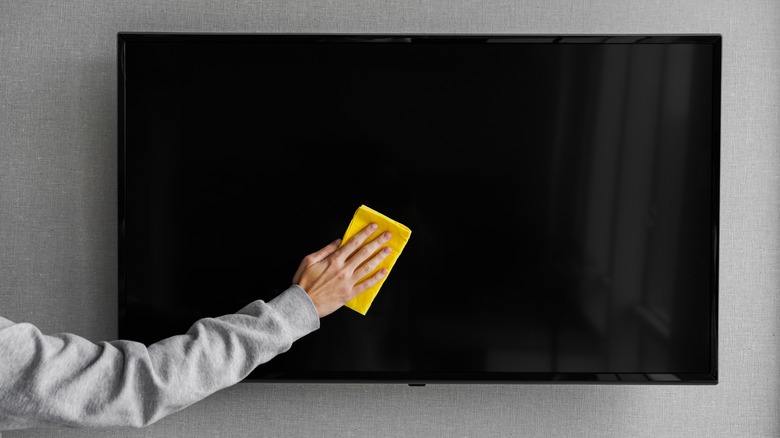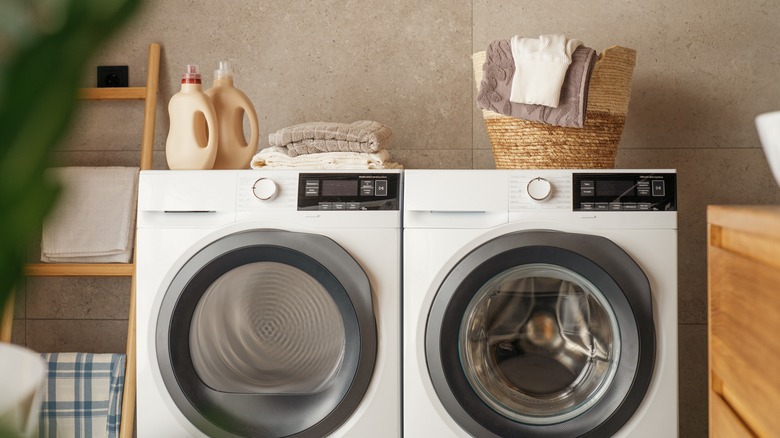10 Things In Your Home You Should Be Washing Not Dusting
For many, it's enjoyable to clean different areas of their homes with a duster and believe everything is well kept and orderly, and it is — kind of. According to the CDC, while removing dust makes any space look clean, germs can live on countertops and other surfaces for weeks. That means anything you touch could have pathogens, and airborne germs from coughing and sneezing tend to settle anywhere they land. Dusting alone won't remove any of these nasties from your living space, but washing solid surfaces will keep them from spreading.
Of course, pathogens enter homes in many different ways. Think about how many things you touch between hand washings. Going out to eat means touching many surfaces and your mouth during a meal, the door on the way in and out of the restaurant, various parts of your car, and the house doorknob. You get the picture — you touch a lot of stuff, and subsequently, germs find their way into your residence. Instead of dusting different areas, consider washing them to keep your house truly clean.
1. Door handles
Believe it or not, door handles are one of the dirtiest surfaces of your home, per Conservation Construction of Dallas. It makes sense if you think about it. How many times a day do you enter or exit your home? Move from room to room? Now, compare that to the frequency with which you clean your doorknobs. Wash your door handles with soap and water or disinfectant wipes once a day (at maximum) to keep them bacteria-free.
2. Eating surfaces
Whether you're having a family meal in the kitchen or entertaining in a large dining room, eating surfaces are magnets for bacteria. Talking, eating, and dropping food can all spread bacteria if these areas aren't cleaned properly. Polo & Tweed states you should thoroughly wash dining areas after each meal, and if the room is used often, deep clean it at least once a week. Use an appropriate cleaner for your eating surfaces. Some are fine for tile, but they may damage wood surfaces.
3. Bathroom fans
Ever cleaned your bathroom fan? If not, you may be surprised by how nasty they get. These fans remove moisture, which helps prevent mold and mildew, but that also means they get damp. As they spin, they pick up various air particles, which leads to nasty build-up (via One Good Thing). If your fan is hard-wired, turn off the circuit breaker, then take off the housing to access and remove the fan. Wash the fan with soap and water, and wipe down the housing before putting it all back together.
4. Workspaces
You've likely been told 1,000 times your desk is dirtier than a toilet seat — and it's true. In fact, these surfaces tend to be about 400 times more filthy, according to Entrepreneur. Even if you work from home, if you're not consistently disinfecting your desk, it's probably quite germy. Instead of dusting, wipe it down at least once a week with a disinfectant spray or wipe.
5. Light switches
Like doorknobs, light switches harbor germs because of the frequency with which they are touched. As such, The Cleaning Institute suggests wiping down your home's light switches twice a week or more with a disinfectant. Since you're already washing your doorknobs frequently — and light switches tend to be right by said doors — save time by disinfecting both each cleaning session. If they have dirt buildup, wash them thoroughly since that gunk harbors germs.
6. Decorative items
While it's unlikely you touch any decorative items on a frequent basis, there's no need to wash them as nearly as often compared to other common household items. Still, dirt and grime can build up even with frequent dusting. How often you need to clean décor largely depends on your home and the material. Ballard Designs recommends washing solid surface items, like metallic accents, as needed.
7. Plastic laundry baskets
You might not consider washing a plastic laundry basket, but if you really think about it, its entire job is to transport dirty linens. Surely, it must need regular washing, too. Home Decor Bliss says plastic laundry baskets are rather easy to wash; all you need is a multi-purpose cleaning spray and a cloth. Wipe down the basket to clean off any dirt build-up, then use a disinfectant spray to remove any remaining odors or germs. Let it dry completely before using it for laundry to make sure the spray doesn't harm any delicate fabrics.
8. Removable light fixture globes
Routinely dusting removable light fixture globes will keep cobwebs away, but you should also wash them twice a year, according to Maid Sailors. Although a general rule, how often you need to do so depends on the type of fixture and where it's located. For example, kitchen light fixtures tend to attract grease from cooking and may need to be cleaned more often. Remove glass globes from the fixture and wash them with hot, soapy water. Then, allow them to dry completely before putting them back up.
9. Home electronics
While regular dusting is a necessity for home electronics, like TVs and game consoles, they also need to be carefully washed a few times every year to remove grimy build-up. Pro Housekeepers recommends using wipes specifically made for electronics to prevent any water damage. Another option is to spray distilled water on a microfiber cloth and gently wipe down any electronics. Never spray any fluids directly on a TV or other accessories.
10. Washer and dryer
Just like laundry baskets, washers and dryers encounter some icky stuff, especially when viruses spread. As such, skip dusting altogether and wash the outer surfaces with a disinfectant spray and cleaning cloth. Today also suggests cleaning the interior of each appliance by adding four cups of plain white vinegar when beginning the wash cycle. Allow it to soak and spin the water out. Then, run a cycle with a cup of baking soda. Complete the rinse and spin cycle for a fresh, clean washing machine.
